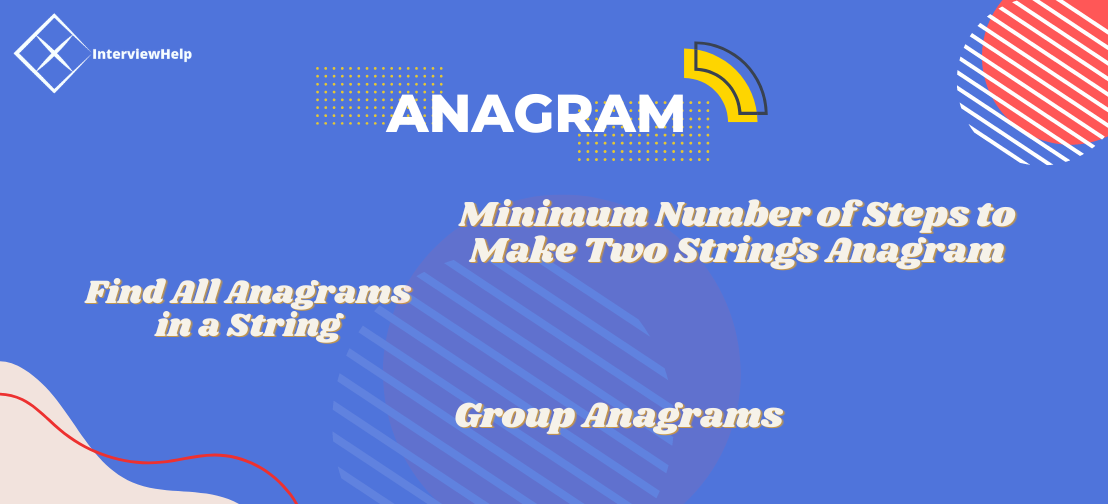Anagram
Anagram
An anagram is a word formed by rearranging the letters of another word, using all the original letters exactly once. For example, the word anagram itself can be rearranged into nagaram, also the word binary into brainy and the word adobe into abode.
Valid Anagram
Given two strings
sandt, how do we check whether they are anagrams of each other?
One way is to sort both strings lexicographically and compare the sorted strings:
python def is_anagram(s, t): return sorted(s) == sorted(t)
This runs in O(nlogn) time and O(n) space.
Can we do better? If the letters in s and t are lowercase English letters, then we can simply store the frequency of each letter.
python from collections import Counter
def is_anagram(s, t): return Counter(s) == Counter(t)
Or
python def is_anagram(s, t): frequency = [0] * 26 for s_char in s: frequency[ord(s_char)-ord(‘a’)] += 1 for t_char in t: frequency[ord(t_char)-ord(‘a’)] -= 1 return all(c == 0 for c in frequency)
The last two frequency-based implementations have linear time complexity and constant space complexity.
Minimum Number of Steps to Make Two Strings Anagram
Given two equal-size strings
sandt. In one step you can choose any character oftand replace it with another character.Return the minimum number of steps to make
tan anagram ofs.
Solution:
python def min_steps(s, t): frequency = [0] * 26 for s_char in s: frequency[ord(s_char) - ord(‘a’)] += 1 for t_char in t: frequency[ord(t_char) - ord(‘a’)] -= 1 return sum(max(0, c) for c in frequency)
Find All Anagrams in a String
Given two strings
sandp, return an array of all the start indices ofp's anagrams ins.
Solution:
python def find_anagrams(s, p): p_counts = [0] * 26 for char in p: p_counts[ord(char) - ord(‘a’)] += 1
current_counts = [0] * 26
for i in range(-len(p)+1, len(s)-len(p)+1):
if i > 0:
current_counts[ord(s[i-1]) - ord('a')] -= 1
current_counts[ord(s[i+len(p)-1]) - ord('a')] += 1
if current_counts == p_counts:
yield i
Group Anagrams
Given an array of strings
strs, group the anagrams together.
Solution:
python from collections import defaultdict
def group_anagrams(strs): anagrams = defaultdict(list) for string in strs: anagrams[tuple(sorted(string))].append(string) return list(anagrams.values())
